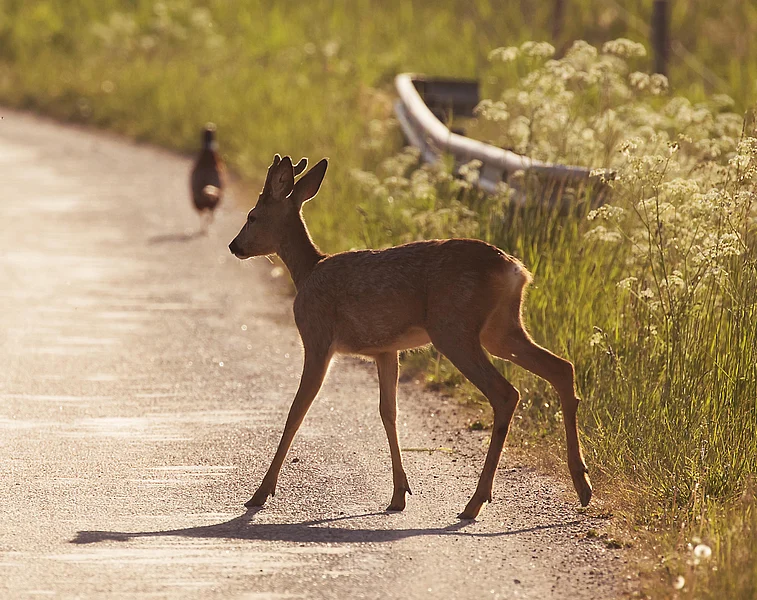COVID-19 May Have Spread Between Humans, Deer
By Cara Murez HealthDay Reporter | Copyright © 2022 HealthDay. All rights reserved.

WEDNESDAY, July 12, 2023 (HealthDay News) -- New research shows that humans and deer passed the coronavirus back and forth in late 2021 and early 2022, raising concerns that this animal reservoir could become a source of new variants.
Humans passed the virus to deer more than 100 times during that period, according to the study, which was led by the U.S. Department of Agriculture Animal and Plant Health Inspection Service (APHIS).
Deer passed the virus back to humans at least three times, the study found.
In addition to providing new opportunities for the virus to mutate, which could cause new variants that later infect people, this animal reservoir could keep variants going that have slowed their spread to humans.
Scientists saw this happening as COVID variants known as Alpha and Gamma circulated in deer after slowing in people, the New York Times reported.
“Deer regularly interact with humans and are commonly found in human environments — near our homes, pets, wastewater and trash,” study author Xiu-Feng Wan, an expert on zoonotic disease at the University of Missouri, said in a statement. “The potential for SARS-CoV-2, or any zoonotic disease, to persist and evolve in wildlife populations can pose unique public health risks.”
To study this, scientists from APHIS, the U.S. Centers for Disease Control and Prevention and the University of Missouri gathered more than 11,000 samples from deer between November 2021 and April 2022 in 26 U.S. states and Washington, D.C.
The researchers sequenced nearly 400 samples, finding Alpha, Gamma, Delta and Omicron variants.
One-third of the deer had coronavirus antibodies. About 12% were actively infected, the findings showed.
The researchers were also able to compare deer and human samples, mapping their paths and concluding that humans spread the virus to deer 109 times. Scientists also saw cases in people in North Carolina and Massachusetts that indicated the humans were infected with "deer-adapted" versions of the virus, the Times reported.
The study findings were published online July 10 in the journal Nature Communications.
More information
The U.S. Centers for Disease Control and Prevention has more on COVID-19.
SOURCES: The New York Times, July 11, 2023; Nature Communications, July 10, 2023




 Like the DIY idea of Dr. Leonardo websites, but just don’t want to Do-It-Yourself? We understand! Fussing over website details isn’t for everyone. But we do love building websites with our builder and we’re kind of obsessive about how we do things. Plus, we can build them lickety-split – typically in
Like the DIY idea of Dr. Leonardo websites, but just don’t want to Do-It-Yourself? We understand! Fussing over website details isn’t for everyone. But we do love building websites with our builder and we’re kind of obsessive about how we do things. Plus, we can build them lickety-split – typically in